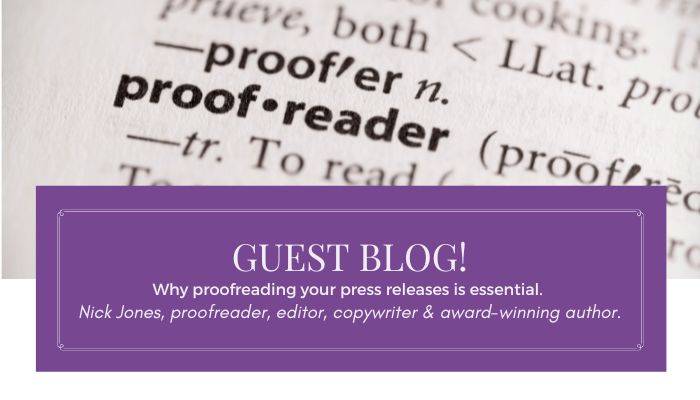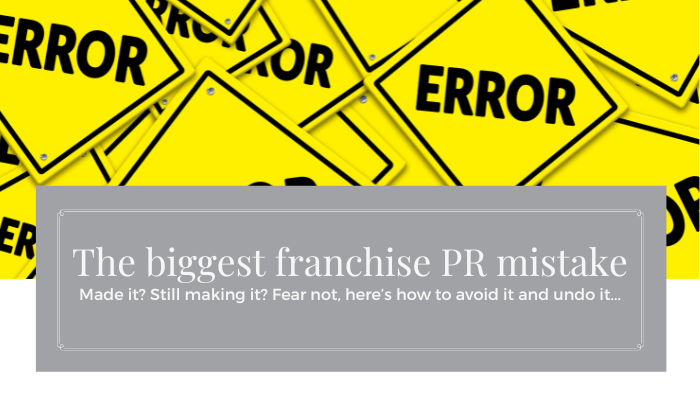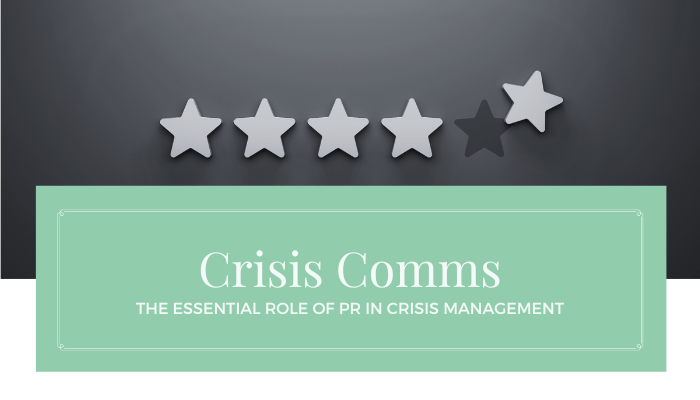PR and its role in crisis comms is serious stuff. We’ve noticed people talking a lot of nonsense on social media recently so, we’re taking a little break from our usual, more light-hearted content, to bring you this serious piece of information.
In today’s digital age, the reputation of your brand can change in an instant. Negative news can (and will) spread like wildfire, particularly on social media, making it imperative for businesses to be prepared. A crisis can be anything from a product failure or customer service interaction gone horribly wrong to – sadly more commonplace – someone in the business behaving inappropriately or, worse, illegally.
It happens; from exploding tins of cat food to domestic abuse. You may not want to believe any of it can occur within your own business or even the business of one of your franchisees, but you must be both vigilant and prepared for the good of the network. Here then, is where a well-crafted integrated PR and crisis comms plan becomes invaluable.
What is a Crisis Comms Plan?
A Crisis Comms Plan is a carefully designed strategy that outlines how a company will respond in times of crisis. Created in conjunction with a PR professional, this document becomes a step-by-step guide, ensuring that the response is swift, effective, and consistent across the organisation both internally and externally.
Why does it matter?
- Speedy response: in a crisis, time is crucial. A pre-emptive plan ensures a faster response, helping to limit potential fallout.
- Consistency across the board: it ensures that every member of your team knows exactly what to do, what NOT to do, and when to do it, ensuring uniformity in communication.
- Upholding trust: responding effectively and transparently with details (if appropriate) of how, when, and why you’re taking action helps in maintaining, and sometimes even strengthening, trust with customers, stakeholders, and the wider public.
- Legal safeguarding: adhering to a well-prepared plan can offer legal protection in certain circumstances.
- Reputation management: as a franchisor, your reputation is one of your most valuable assets. Following your plan assists in managing the narrative and reducing the impact on the company’s reputation.
The basics of an integrated PR and Crisis Comms Plan
Whilst we’d never encourage something as specialist as this be attempted solo, we feel strongly that everyone should be armed with the knowledge of what should be included. Knowledge is power and if you know what to expect, you’re less likely to be taken advantage of or end up with a substandard strategy. We’re like that here at Team Rev, we’ll always look out for you!
- Defining and categorising a crisis. Your Crisis Comms Plan should clearly define what constitutes a crisis for your organisation, taking into account the sector in which you operate and the product or service you provide. The different types of crises can then be categorised to determine the required level of response. This is also referred to as Risk Assessment – a term most people are more familiar with.
- Assembling a crisis communication team. Your plan should detail the members of a multidisciplinary team of key individuals responsible for managing the crisis. Most of these people will be from within your organisation but could also include external third parties. Clearly outline each member’s role and responsibilities.
- Mapping stakeholders. This involves identifying and prioritising key stakeholders, including customers, staff, franchisees, private investors, and the media. Understand their concerns and what they expect from you.
- Developing messaging and positioning. Prepare key messages and positioning statements in advance, and tailor them for different types of crises and stakeholder groups. You may also hear these called holding statements and are crucial for managing response to external enquiries and internal communications. They can often be used to allow for internal investigations and clarifications to be undertaken whilst still tactfully acknowledging an incident.
- Choosing communication channels. When dealing with the media, it’s not likely you’ll be able to choose your channel of communication. However, an integrated PR and Crisis Comms Plan should detail the agreed communication channels you will use to share additional or ongoing information, whether it be press release, social media updates, emails, or press conference.
- Monitoring and assessment. Your Crisis Comms Plan should link into your standard procedures for tracking media and public reactions, assessing the effectiveness of your communication strategies.
- Post-crisis evaluation. Once the incident is deemed to have been properly addressed, post-crisis evaluation is a necessity. Your PR and management team should meet and assess the effectiveness of your response and update your plan accordingly, learning from any mistakes or shortcomings.
Navigating the storm
In the unpredictable world of business, crises are, unfortunately, inevitable. However, with a robust Crisis Communications Plan in place, franchisors and franchisees have the best possible chance of being able navigate challenges with grace and resilience. Yes, the aim is to protect your reputation and maintain the trust of those who matter most. But it’s equally important to act with integrity and empathy for anyone affected by the actions of your business or its people.
It’s not just about weathering the storm – it’s about coming out stronger on the other side.
Team Rev regularly work with clients to produce an integrated PR and crisis communications plan – in fact, our co-founder, Sally, is a crisis specialist! If you haven’t got a plan in place or, need to make sure your existing one is up to date, drop us a line for a confidential chat. Email lucy@revpr.co.uk or call 07921 572554.
In case you’re new here, we regularly write articles about hot topics and share PR advice like this to help you make the most of your PR activity. To make sure you don’t miss out, follow us on social media: LinkedIn, Twitter or Instagram






